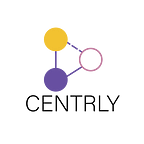Contextualizing the Starbucks / Volvo EV charging partnership announcement
Next time you stop for a Starbucks between Denver and Seattle, you might be able to charge up your electric vehicle while you wait. Starbucks and Volvo recently announced a partnership to install a network of EV charging stations along this 1,300+ mile route. On its own, this is a bit of a surprising partnership, since it’s a couple steps removed from Starbucks’ core offering. Through Centrly’s network analysis, we can start to see how Starbucks’ sustainability partnership shape up around their announced 2030 sustainability goals. We’ll explore how this new EV charging station fits into this partnership landscape, and suggest a couple areas where Starbucks could look for up-next partnership opportunities.
Understanding the existing partnership landscape
Here, we’ve mapped a number of Starbucks’ sustainability-focused strategic relationships, which brings together 24 different relationships into just one screen. These relationships can be clustered into topic areas around their priority areas, which include more plant based options, better reducing waste, and greener stores. From mapping the 1st degree connections and grouping the nodes by focus area, we can see that Starbucks has a diverse set of partnerships, with a few key relationships in each priority area.
Why partner with Volvo?
The Starbucks-Volvo relationship is particularly interesting as it expands the scope of the “greener store” priority area. One subset of relationships in the “greener store” area is clustered around local renewable power, like their 2021 partnership with Generate Capital to supply solar energy to 23 stores in New York. Another subset is more exploratory, such as their relationship with Arizona State University which includes a joint innovation lab in Seattle. An EV charging relationship broadens the scope of what “greener stores” can entail. And Volvo was a potential partner already within Starbucks’ second degree network, completing the relationship triangle between Starbucks, Volvo, and the World Wildlife Fund, which is a mutual strategic partner of both companies. (By the way, this isn’t the first time we’ve seen this phenomenon of a new partnership that completes a relationship triangle — check out our prior post on Toyota, Ecolectro, and the Department of Energy.)
Potential up-next partnership moves for Starbucks
While Starbucks’ sustainability strategy relies primarily on strategic partnerships, there are a few few initiatives where they have taken a different involvement approach. These initiatives where Starbucks has a founding partner or investor role open up relationship pathways that put new potential partners within their 2nd or 3rd degree network.
Expanding EV charging partnerships. If searching for another automotive partnership to expand in the EV charging space, Starbucks could look at their second degree connections through the Transform to Net Zero initiative, where they are a founding partner. Another founding partner within this initiative is Mercedes-Benz, who also has an existing relationship with Chargepoint — the same infrastructure company supporting the Starbucks <> Volvo partnership.
Food waste reduction. One of Starbucks’ announced goals is reducing waste. So far, this looks like it’s materializing through focusing on reusable cups. An additional option would be to partner with a company like Mori that’s working on food waste reduction (for those salad options near the checkout). Mori is a second degree connection through Closed Loop Partners.
More diverse plant-based supplier partnerships. With the recent additions of Oatly and Beyond Meat to their partnership network in 2021, Starbucks is leaning in to the growing popularity of plant-based options. It will be interesting to see whether Starbucks continues to partner with newer plant-based brands to bring a more exciting offering to consumers. This would be a continued move away from its partnership with Danone, where announcements slowed down after 2013–2015 with no new announcements since 2020 and none that focused on plant-based offerings.
About Centrly
Centrly’s unique approach to market intelligence uses network visualizations to contextualize B2B relationships in the market. By identifying and mapping these B2B relationships, we provide insights that are difficult to stitch together elsewhere. If you’re interested in how we can help you understand emerging market spaces and identify potential partnership targets, drop us a line.
